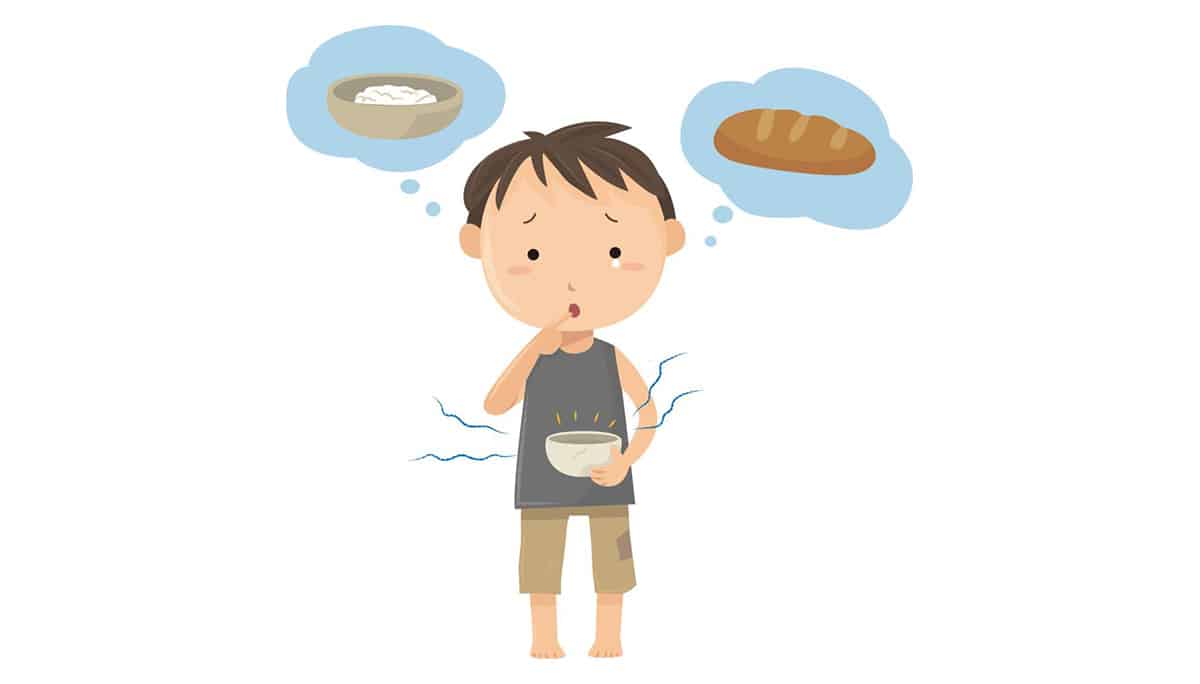
Warning: If you have or are recovering from an eating disorder, this post may be triggering for you; read at your own discretion.
We live in a world where you can easily go for years at a time without feeling real, physical hunger caused by a physiological need for additional calories (this is different from cravings, which come from your brain, not your body). Food is available everywhere, and it’s completely normal to eat it just because it’s there, regardless of whether your body actually needs the energy or not. We eat before we’re hungry, just to make sure that we’ll never have to experience it. We worry about snacks to bring “just in case.”
Even experts on weight loss constantly advise people to “never go hungry:” if you let yourself get too hungry, the theory goes, you’ll end up grabbing the first easily-available food you can find when your willpower snaps and the hunger makes you desperate, and you’ll almost always end up eating something unhealthy because unfortunately, unhealthy foods are usually the most convenient.
There’s some truth to that. It’s true that going hungry all the time is not a sustainable weight-loss plan: it’s unpleasant and most people won’t keep it up in the long term. It’s also unnecessary. You don’t have to be hungry all the time to lose weight.
But there’s also another side to the coin: going hungry on occasion, under the right circumstances, can actually help you develop a calmer and healthier relationship with food. Hunger is not unhealthy, and it’s not an emergency – if humans are built to do one thing well, it’s to function in the face of temporary food shortage. Hunger isn’t comfortable, but it can be very educational, and the small discomfort can bring you significant benefits down the line. And it can even make your meals taste better!
Physical Hunger vs. Cravings
Not every desire to eat comes from your body’s physical need for food. True hunger, or “body hunger” is a physiological need for more nutrients – your body needs more fuel, and it sends you the message via physical sensations like twisting or emptiness in your stomach. When you’re physically hungry, you’re happy to eat just about any nutritious meal.
But you can also feel the desire to eat because you’re stressed out, bored, lonely, sad, or feeling another emotion, even if you’re not physically hungry at all. You can feel the urge to eat just out of habit, because you always eat at that time. You might have a very strong urge to eat, but this isn’t true physical hunger because you don’t actually need any nutrients. Often this “brain hunger” comes in the form of strong craving for a particular food (e.g. chocolate) and it won’t be satisfied by “just” eating a nutritious meal.
“Brain hunger” is a topic all of its own, but here we’re looking at “body hunger:” why you might want to let yourself feel it for a while sometimes, and how to do it.
Why would I Want to Do That?
Because you can’t “eat when you’re hungry” unless you know what “hungry” feels like.
The generally excellent advice to “eat when you’re hungry; stop when you’re full” is meaningless if you don’t know what hunger actually feels like. If you’ve never paid attention to the sensation of physical hunger, it’s hard to distinguish from other things that make you want to eat.
That’s important because paying attention to hunger is a great weight-loss strategy. Very few people gain an unhealthy amount of weight by eating enough to satisfy their hunger and then stopping when their physical hunger is gone. But many, many people gain huge amounts of weight by eating in response to “brain hunger:” cravings, social pressure, boredom, and the rest of it.
If you aren’t familiar with true hunger, it’s very hard to distinguish from all these other reasons to eat, which makes it hard to know how much food your body actually needs to feel great and perform well without gaining extra weight. Calorie-counting is a very laborious and imprecise substitute, and it doesn’t work well for most people anyway. If you know what hunger feels like, because you’ve actually been hungry and paid attention to the sensations, then you have an intuitive, accurate, and easy way to judge how much fuel your body needs.
Because you’re going to have to deal with it eventually.
A second reason to get comfortable with hunger is that you are going to have to deal with it eventually, and knowing how to manage that feeling without panicking can help you stay on track with your healthy eating plan.
At some point, you’re going to be hungry. Maybe you’ll be stuck on a subway, a plane, a bus, or a long stretch of highway at night. Maybe you’ll be trapped in a class or meeting you can’t get out of. Even in the modern world, it’s going to happen.
Most people who rarely feel hunger have a very strong emotional reaction to it when they do have to experience it. They start to feel frantic and desperate. Once they’re free from whatever the situation is, they typically race to the nearest food source they can find to make the unfamiliar and distressing feeling go away.
But if you’re familiar with hunger, you can acknowledge the physical sensation without experiencing any emotional distress. It’s just a sensation, like a change in temperature or a noise in the background. It doesn’t upset you to the point of feeling desperate or afraid. When you finally eat, you’ll do it calmly, and you won’t frantically make unhealthy choices just to get something in your mouth.
You can’t reach that point of familiarity unless you’re experienced at sitting with your hunger and letting it exist without getting upset over it. So occasionally going hungry and noticing how you feel can be very good practice for those situations.

Because Hunger Really Is the Best Spice
Food tastes amazing when you’re truly hungry. When you’re downright ravenous, plain hard-boiled eggs and steamed broccoli can taste divinely inspired. There’s nothing more to say here, because you really have to experience it to believe it.
Hunger Training: How to Do it Right
So, you want to get comfortable with hunger? Here’s how to start.
- Try letting yourself get physically hungry between meals. Don’t snack “in case you get hungry” later on; wait until you feel the physical sensation of hunger to eat something.
- If you don’t get truly hungry between meals, try pushing back a meal until you feel hunger in your stomach, not just the desire to eat because you always eat at that time, or because you’re bored, or because you’re afraid you’ll get hungry later.
- When you feel hunger, don’t eat immediately. Stop and pay attention to it. The first time or two, write down how it feels physically. What’s the sensation in your stomach? Do you feel it anywhere else? Or is it actually "brain hunger" and not "body hunger" at all?
- When you’re done experiencing your hunger, eat slowly and calmly; don’t rush over to the kitchen and start cramming down everything you can find. Remember: it’s just hunger, and hunger is not an emergency. You're designed to be extremely resilient and functional over long-term periods of nutritional scarcity. Skipping one meal is not dangerous and there’s no reason to panic over it.
If you’re not accustomed to feeling hunger, do this slowly and start on days when you don’t have a lot of stressful stuff to do (weekends work well).
Summing it Up
Nobody is suggesting that you should be hungry all the time, or that you have to starve yourself to lose weight. And again, if you’re in recovery from an eating disorder, or if you have another medical problem that could make skipping meals dangerous, none of this applies to you. But for people who don’t have an eating disorder or any other relevant medical conditions, occasionally going hungry can help you get back in touch with your body’s actual need for fuel, prepare you for times when you won’t be able to avoid hunger, and make your food that much better when it does come. It’s worth an experiment or two, at least!





Leave a Reply